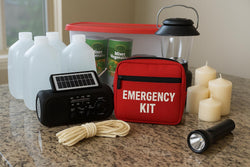Tempramed Blog
Thriving with Diabetes at University: Your Roadmap to Success

Whether you are someone you love is starting university, it marks a new chapter: new independence, new friendships, and new challenges. If you’re living with diabetes, it also means a new level of responsibility when it comes to managing your health. The good news is that with smart planning and the right strategies, you can thrive academically, socially, and physically.
Here’s your ultimate guide to starting university strong and staying in control of your diabetes every step of the way:
1. Get to Know Your New Environment
Before classes begin, familiarize yourself with your campus and the surrounding area. Locate:
-
The nearest pharmacy and emergency services
-
Your university’s medical center or clinic
-
Healthy food options in the dining halls or nearby stores
-
Quiet places for testing or injecting if needed
Take a campus tour and map out these key locations so you’re never caught off guard.
2. Build a Medical Support Network
Let your university know about your diabetes, especially the campus health center. Book an appointment early on to:
-
Register with a campus doctor
-
Share your medical history and diabetes plan
-
Ask about emergency procedures and accommodations (such as extended test time or access to snacks during exams)
💬 Expert Insight:
We asked Janice Baker, MBA, RDN, CDCES, CNSC, BC-ADM — a Registered Dietitian and Certified Diabetes Educator (who has also sent three of her kids to college) what advice she gives her patients preparing for college:
“The transition to college is both exciting and a challenge for the student and parents. Whether local or at a distance, areas to consider include adapting to a new schedule, finding local medical providers and/or transitioning from pediatric to adult endocrinology teams, and establishing housing and food resources. Many colleges offer on-campus health centers and disability resources as well as peer support groups. Mental health is as important as physical health and 'good' glucose numbers. A happy and exciting college experience is completely possible, and teaming up with a Certified Diabetes Care and Education Specialist can be both a sounding board and connect you to resources to get through challenging times.”
3. Pack Diabetes-Smart Essentials
Your packing list should include:
-
Enough supplies (test strips, insulin, sensors, etc.) to last the semester
-
A medical ID bracelet
-
A mini emergency kit with glucose tabs, snacks, and your glucagon pen
-
Temperature protection for insulin, like a VIVI Cap, or mini fridge for dorm use.
Always carry a backup — items can easily get misplaced in shared spaces.
4. Talk to Roommates and Friends
You don’t have to share everything, but telling close friends or your roommate about your diabetes could save your life in an emergency. Let them know how to recognize signs of hypo- or hyperglycemia and what to do if you’re unwell.
Tip: Keep a simple written plan or emergency card somewhere visible in your room.
5. Plan for a New Routine
University life is exciting, but it can also be unpredictable. Late nights, unfamiliar food, alcohol, and irregular schedules can throw your diabetes off track. Stay ahead by:
-
Sticking to your usual testing and injection schedule as much as possible
-
Using a diabetes app or journal to track patterns
-
Setting phone reminders if your schedule is packed with classes or events
Consistency is important, but so is flexibility and self-compassion.
6. Eat Smart Without Missing Out
Dining halls can be tricky, but they’re manageable with some planning:
-
Scan nutrition info if available, or stick with whole, unprocessed foods when possible
-
Stock your dorm with healthy snacks for late-night cravings or sudden lows
-
Learn to estimate carb counts for unfamiliar meals
You can still enjoy pizza nights and parties — just balance them with awareness and preparation.
7. Don’t Skip Mental Health
Managing a chronic condition during a major life transition isn’t easy. Stress, anxiety, and burnout are real and common for students with diabetes. Most universities offer:
-
Free counseling services
-
Peer support groups
-
Wellness workshops
Your mental health is just as important as your blood sugar levels.
8. Stay Connected to Your Care Team
Even from a distance, keep in touch with your endocrinologist or diabetes educator. Schedule virtual check-ins during breaks and don’t hesitate to ask for help adjusting your plan as your lifestyle shifts.
You’ve Got This
University is about more than just textbooks and exams. It’s a time to explore, grow, and shape your future. Diabetes may be a part of your life, but it doesn't define it. With smart preparation and the right mindset, you can take full advantage of everything this new chapter has to offer.
Pack your supplies, find your rhythm, and step into campus life with confidence. You’re ready.




